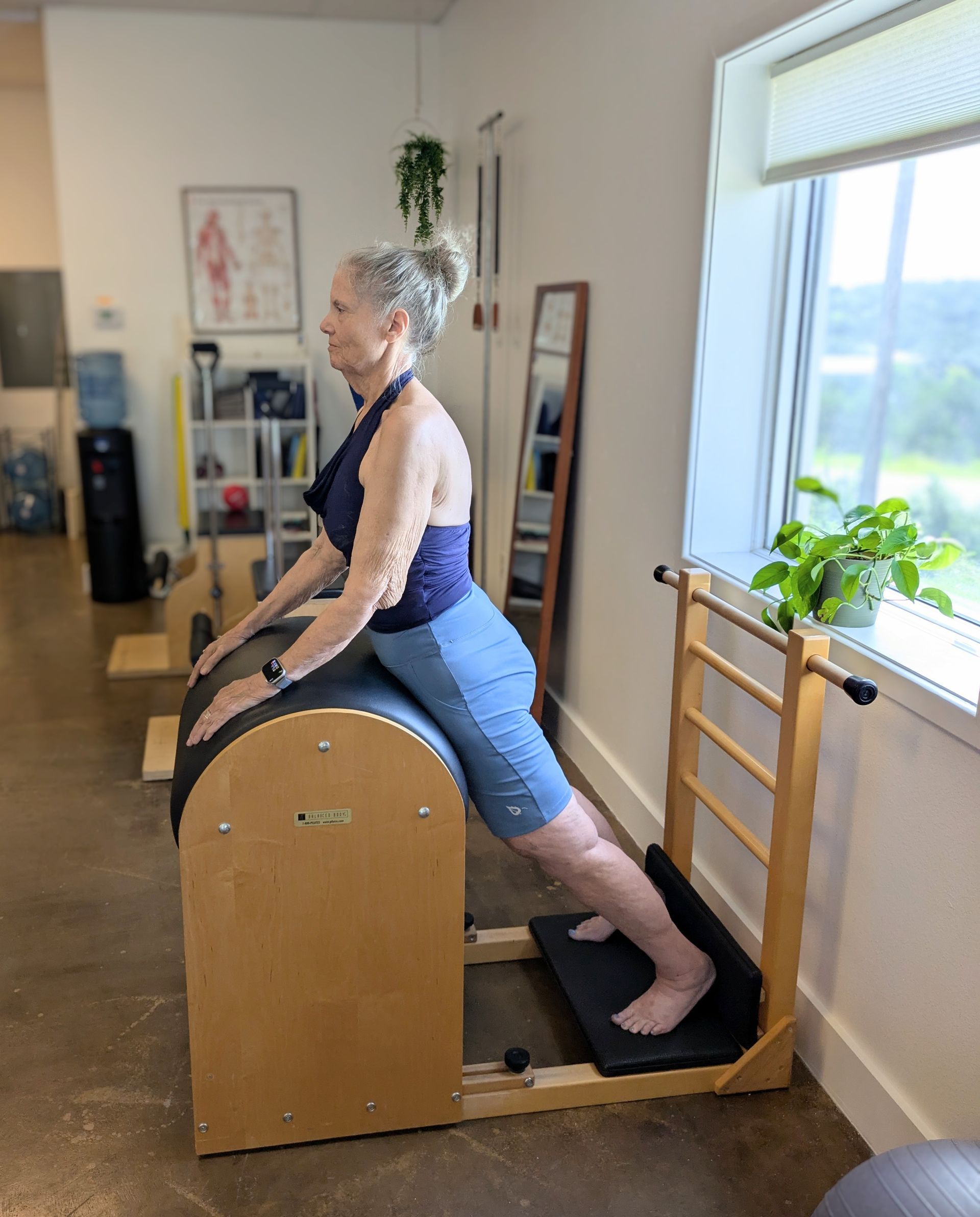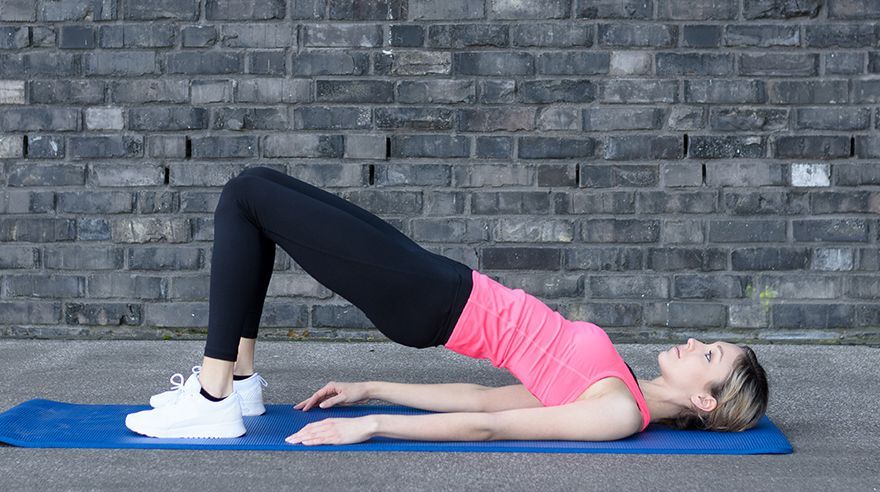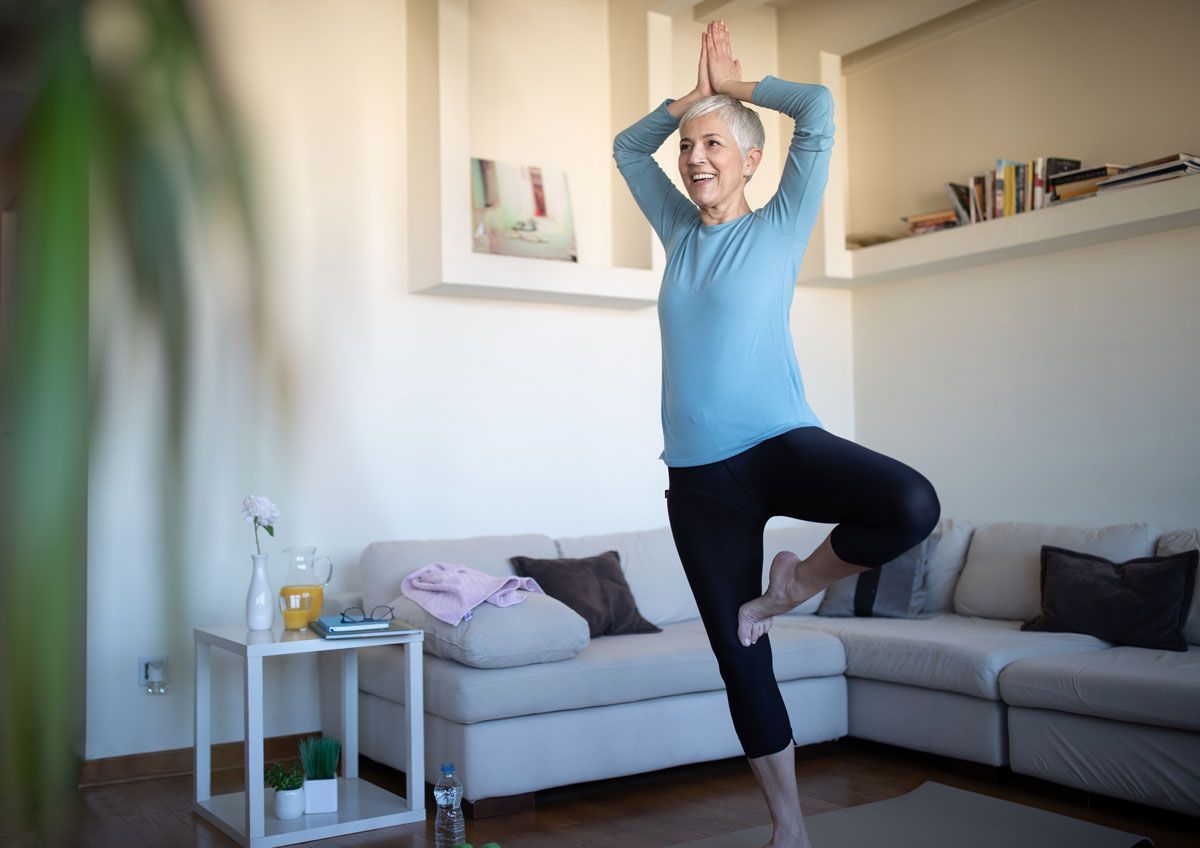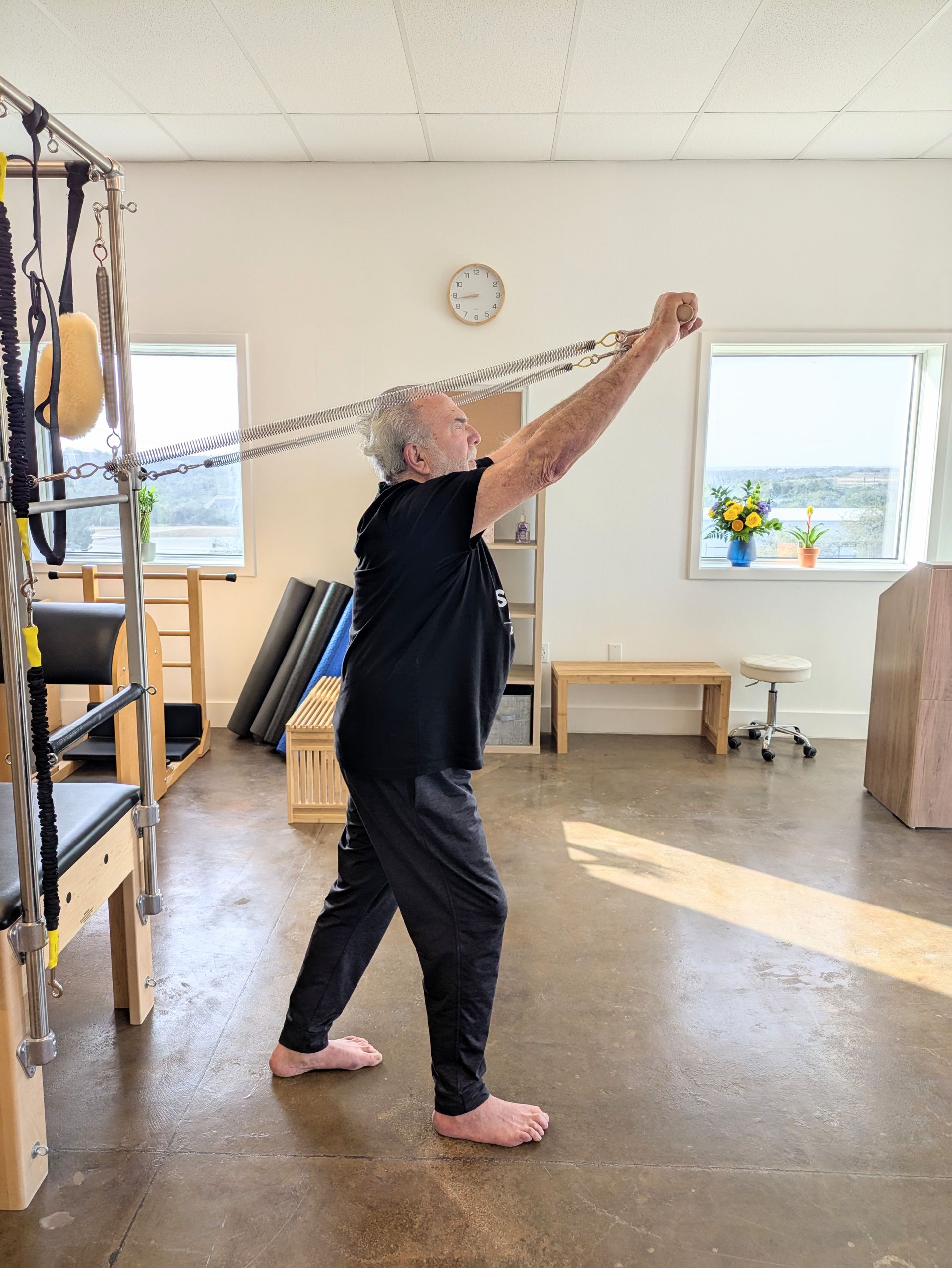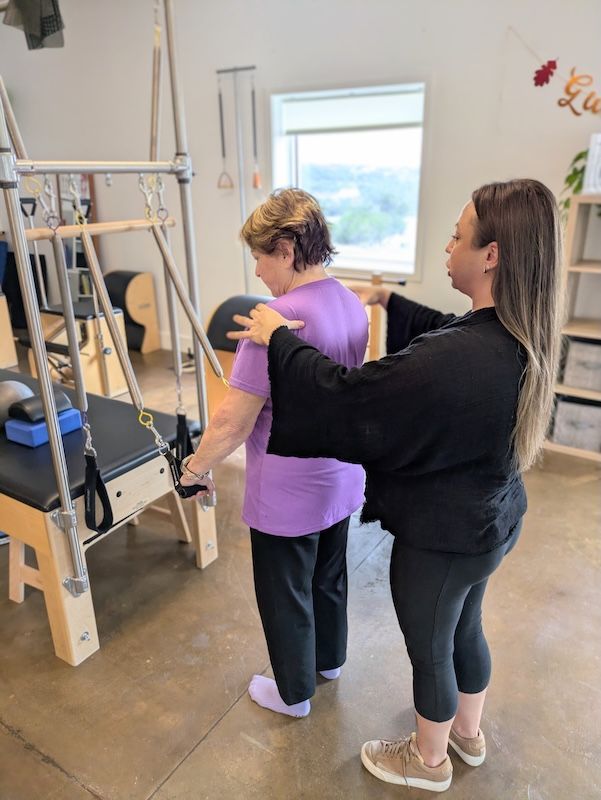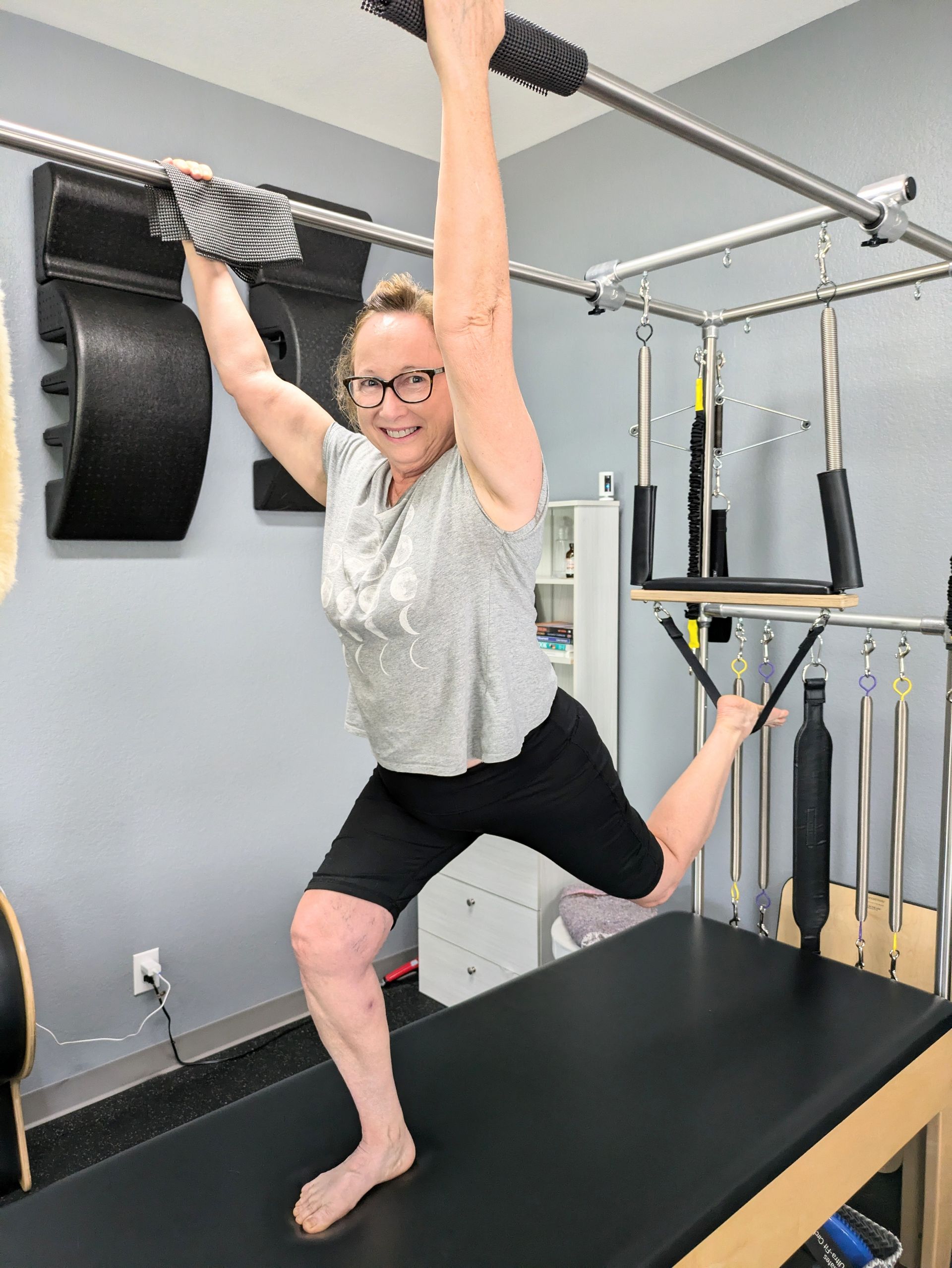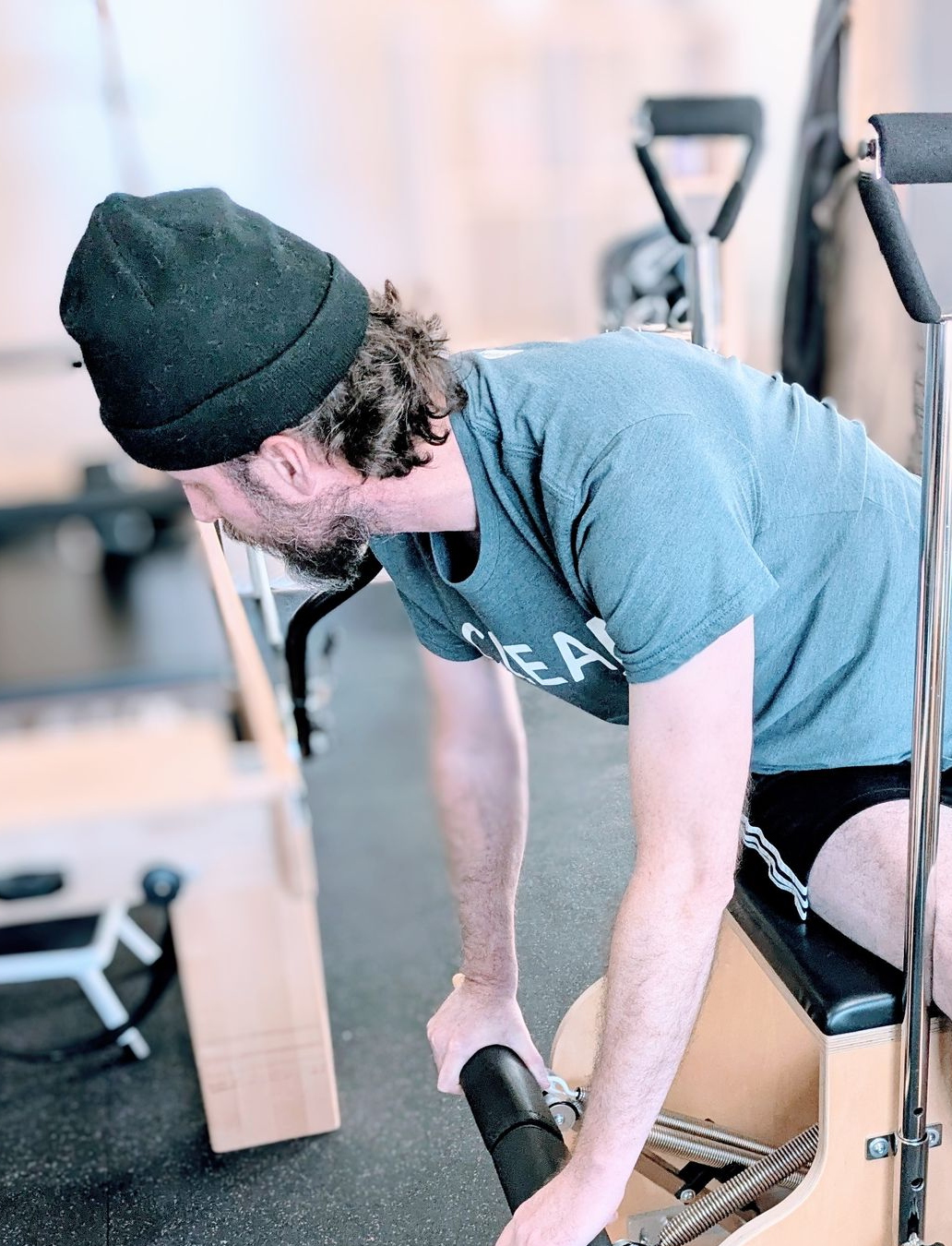Pilates for Hypermobility: Strength Without Strain
Why mindful, mid-range movement and spring-based equipment make Pilates one of the best exercise methods for hypermobility, joint instability, and connective tissue disorders like Ehlers-Danlos syndrome.
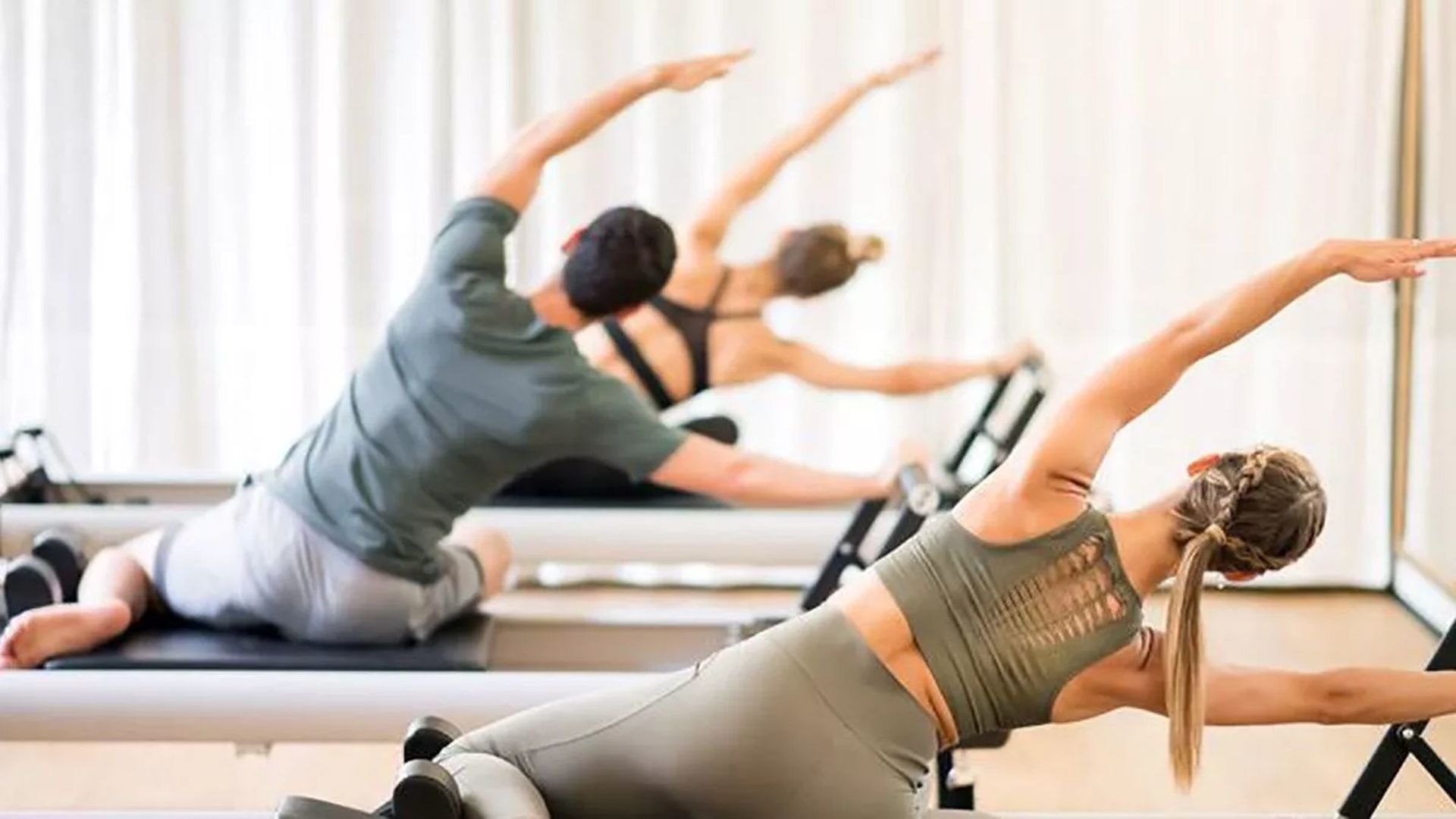
If you have hypermobility, you know it’s more than just being flexible. Many people with joint hypermobility, Hypermobility Spectrum Disorder (HSD), or Ehlers–Danlos syndrome (EDS) experience pain, instability, muscle fatigue, and frequent injuries. Finding exercise that feels safe and supportive can be a challenge.
This is where Pilates for hypermobility truly shines. With its focus on controlled movement, mid-range strength, and deep stabilizing muscles, Pilates helps hypermobile bodies feel more grounded, strong, and confident.
Understanding Hypermobility (The Simple Version)
Hypermobility occurs when joints move beyond the typical range. For some, this is mild and isolated; for others—especially with conditions like EDS or HSD—it’s more widespread and affects daily movement.
Common symptoms include:
- Loose or unstable joints
- Frequent sprains, strains, or soft-tissue injuries
- Pain that fluctuates or worsens after stretching
- Poor body awareness or balance
- A habit of dropping into end-range positions
These challenges make traditional fitness (especially high-impact or stretch-heavy workouts) feel risky or uncomfortable.
Many people with hypermobility also live with related conditions such as POTS, MCAS, chronic fatigue, or chronic pain syndromes, all of which can influence how safe and supported movement needs to be. While Pilates is not a medical treatment, it can be an incredibly helpful tool for building stability and reducing joint strain in bodies managing these overlapping symptoms.
Why Pilates Works So Well for Hypermobility
Pilates is built on precision, control, and mindful movement, exactly what hypermobile joints need.
- Mid-Range, Not End-Range:
Pilates teaches you to move in a safe, supported middle range instead of relying on hyperextension or joint laxity.
- Better Body Awareness:
Slow, intentional exercises improve proprioception and help you sense where your joints actually are.
- Deep Stabilizer Strength:
Pilates targets the core, glutes, and stabilizing muscles that protect the joints and reduce injury.
- Low-Impact but Highly Effective: It builds strength without stressing or overloading your joints, ideal for HSD, EDS, and chronic pain.
Why the Equipment Makes a Difference
Pilates equipment provides spring-based resistance and guided support, helping you stay in control and maintain mid-range alignment. Footbars, straps, and handles offer structure so your body feels organized—not overstretched or unstable. This environment is uniquely safe for hypermobile joints.
The Value of a Trained Pilates Teacher
Hypermobility benefits most from individualized instruction. A skilled Pilates teacher will help you:
- avoid overstretching
- limit end-range movement
- strengthen safely
- modify during flare-ups
- build alignment and control
At Soma Lux Pilates, our small classes (max 5) and tailored private sessions ensure personalized support for every hypermobile client.
What You Can Expect from Pilates for Hypermobility
With consistent practice, clients often experience:
- stronger, more stable joints
- fewer injuries and flare-ups
- improved posture and body awareness
- reduced pain and fatigue
- greater confidence in daily movement
Most importantly, Pilates helps you feel more at home in your body.
Your body deserves movement that feels good and keeps you strong. Join us at Soma Lux Pilates to experience a thoughtful, hypermobility-friendly approach to Pilates.

